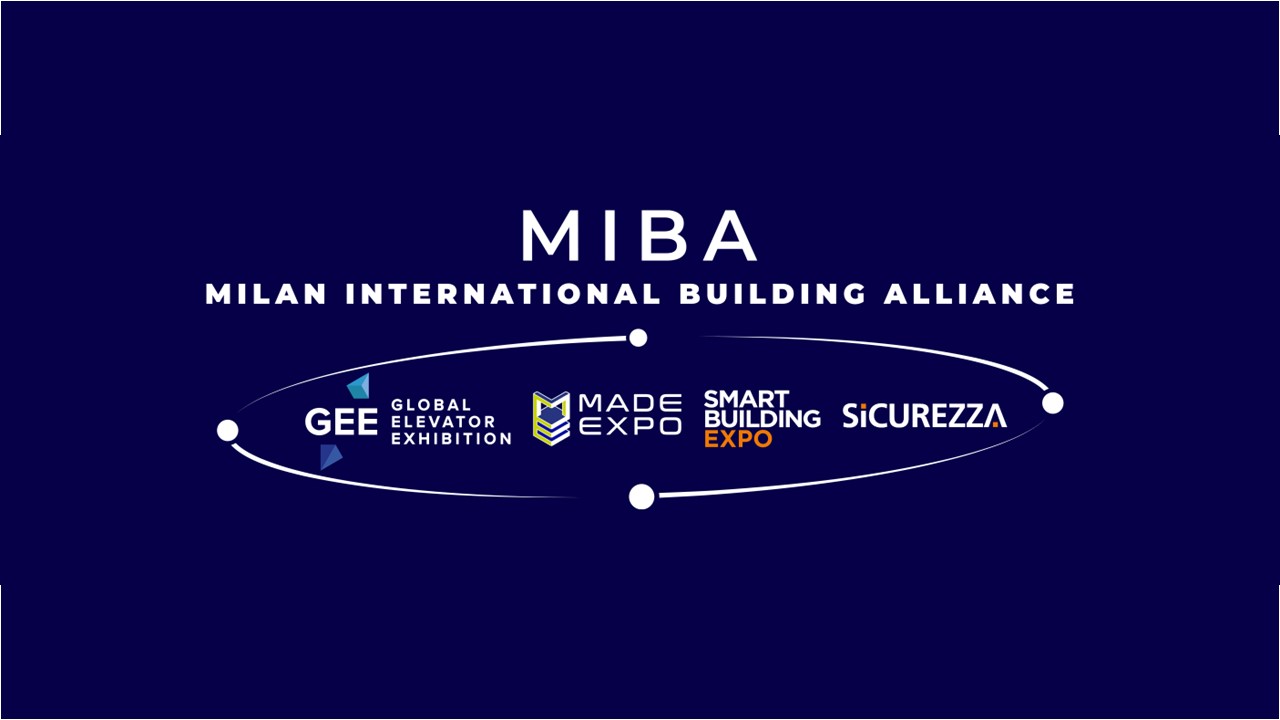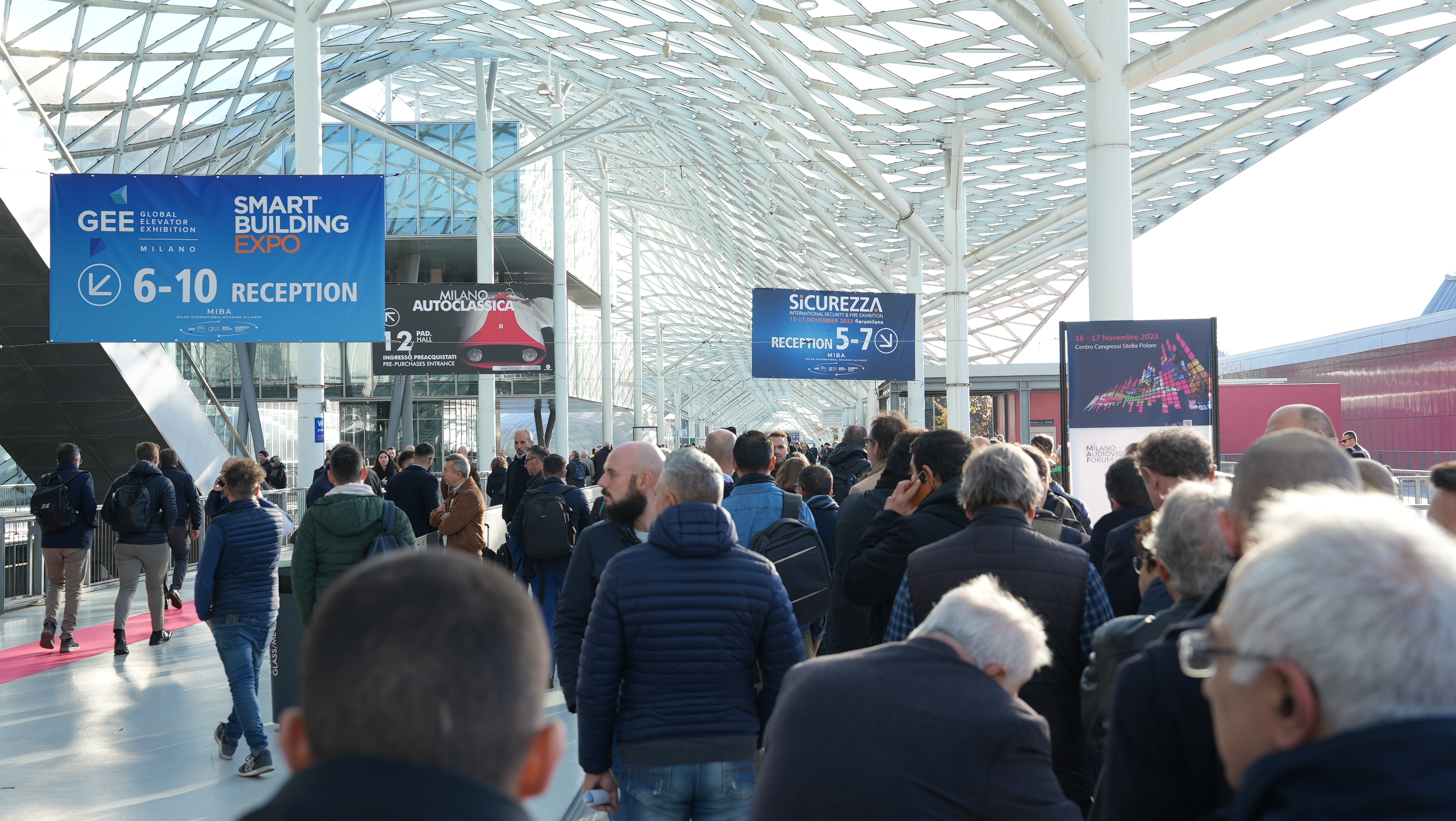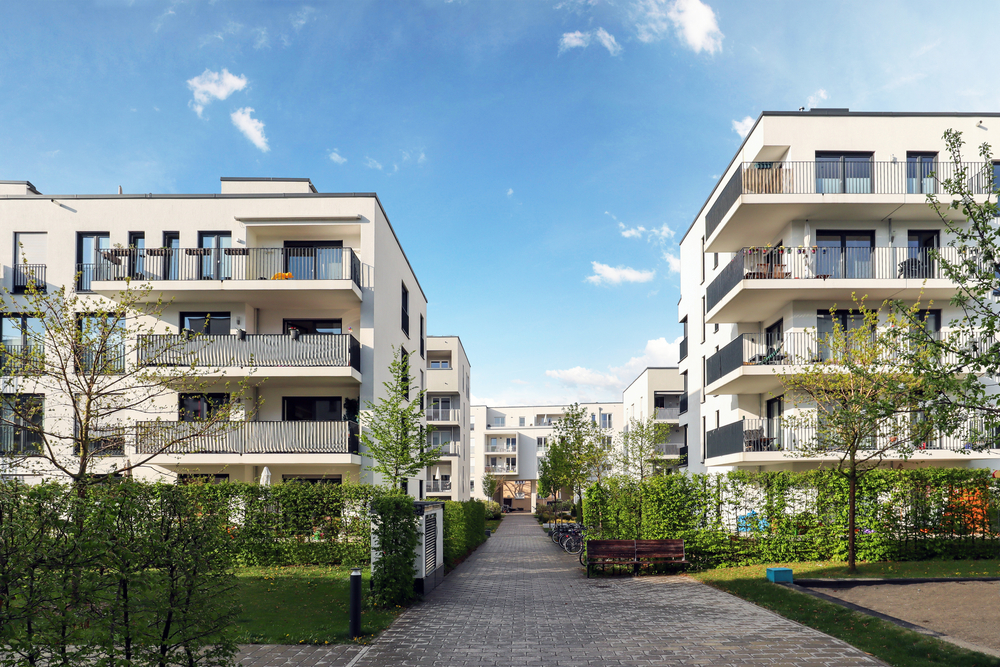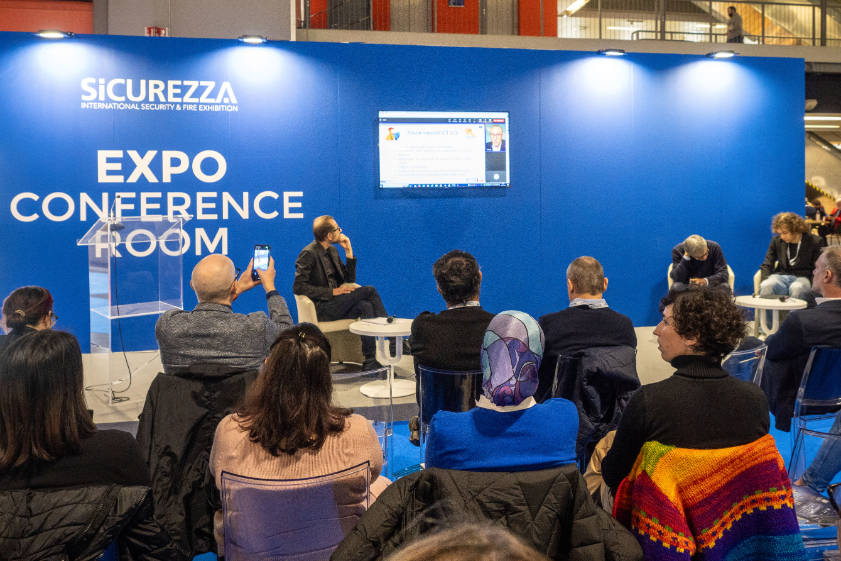Bars, restaurants, hotels: the pandemic has dramatically changed the sanitation and safety requirements for all places where food is sold and served. Ensuring the highest standards of health and safety requires a proper risk analysis, a certified protocol, technologies that enable the adoption of this regulatory path and a new corporate culture that helps following clear and unambiguous regulations in order to ensure the safety of employees, suppliers and customers. This was discussed during the webinar "Sanitation, safety and relaunch", organised by Fiera Milano in collaboration with Fiera Milano Media - Business International, which took place on the 21st of April 2021 at 11:00 a.m. and was part of a high-level training course designed to guide all those who are interested through to the next autumn editions of HOST Milano and SICUREZZA, which are scheduled respectively from 22 to 26 of October 2021 and from 22 to 24 of November 2021. In an hour and a half of discussion, some of the most important experts within the Ho.re.ca. and Security sector, such as Silvia Cettineo, Account Manager Italy of Kiwa Cermet Italia, Raffaele De Astis, President of Assosicurezza, Vincenzo Dell'Anna, Rheumatologist and Medical Hydrologist, Member of the Board of the Italian Society of Oxygen Ozone Therapy, Andrea Doglioni Majer, President of Assofoodtec/Ucimac - ANIMA Confindustria, Angelo Iorio, professional sanitation expert, Giulio Iucci, President of Anie Sicurezza, Paolo Pizzocaro, Exhibition Director, BU Food, Tech, Travel & Industry of Fiera Milano, Andrea Rossi, President of EFCEM Italia, took the floor, under the careful moderation of Massimo Artorige Giubilesi, President of the Order of Food Technologists of Lombardy and Liguria, President of FCSI Italian Unit and CEO of Giubilesi&Associati, to explain how nowadays, even in Italy, within the world of catering and professional hospitality it is possible to look at the economic restart in a proactive manner, through a series of proposals based on scientific evidence and analysis of real data.
THE DECALOGUE FOR SAFE REOPENING
«In order to improve the situation dictated by the Pandemic – suggested Giubilesi at the opening of the session –, we must all work together, starting from new paradigms and new thoughts that can lead to new strategies, on the basis of technical and scientific information that is important to know. Reacting means grounding a new, more concrete and comprehensive model that focuses on quality and safety not only of the products but also of the environments in which they are used. It is necessary to follow the rules, to rely on data and information, to be transparent, while giving and receiving trust. Clearly, with new rules also come new competencies, which must be geared towards a new concept of healthiness focused on a set of objectives for sanitation that can be summarised as follows: starting from risk analysis for a new approach to the healthiness of environments; thinking about a prevention from all kinds of contamination; implementing radical sanitation; following protocols validated by scientific tests; carrying out periodic control and monitoring; knowing and staying up-to-date on innovative technologies for sanitation taking place in the presence of people and not only in their absence; activating synergies between chemical products and technological systems; focusing on effective ecological sanitation, making it sustainable and affordable for everyone; making one's investment a value for the company to be shared with customers; operating well and communicating better».
«In this sense, for example, sanitization with ozone - added Dell'Anna - which is normally used in purely sanitary environments due to its high bactericidal power which is unequalled in nature, could also be applied to other types of places, such as bars, restaurants or hotels, to combat the possibility of contagions related to Covid-19. The important thing, however, will be to train operators in order to handle this new technology and create a deeper understanding of these methods for sanitising environments. In a context of great confusion and experimentation, in which precise and unambiguous guidelines still seem to be lacking, certification is not enough for the field of sanitation. Instead, we need to move towards certified protocols, so that there’s going to be someone who can establish with objective evidence whether a place is really healthy or not».
THE IMPORTANCE OF CERTIFIED INDICATIONS
Therefore, from scientific evidence it is necessary to find sustainable solutions in order to restart businesses in segments that were deeply affected by the economic crisis resulting from the pandemic, such as the hospitality and catering industry or tourism in general. This should be achieved through a process of corporate reorganisation that needs to be cultural before being operational, and in which management must believe. «It’s important to emphasise that certification per se means nothing if is not backed up by a serious protocol based on the assumption of risk assessment – adds Cettineo –. In my opinion, what we’re lacking today is measuring the performance of results. First of all, we need to calculate the risk of the action we are going to plan in a determined environment. As a matter of fact, methodology doesn’t always facilitate the result. What needs to be done to help this situation is to stop delegating risk management to third parties and instead setting up an activity of risk assessment based on concerted, multidisciplinary work that can lead all players in the company to measure their actions in order to make operations and resources more efficient, reduce waste and improve results that need to be consciously and constantly monitored».
SOLUTIONS AND EXPERTISE FOR A WINNING TECHNOLOGY
Once an action strategy based on data and analytical evidence has been developed, it is necessary to understand what is really needed in terms of solutions to implement the recovery process. «In this sense – remarks De Astis – technologies linked to the world of security can be a valid support for hospitality professionals to face what’s happening today - the so-called 'new normal' - but also tomorrow - the 'next normal' - in an efficient and proactive manner, facilitating control and compliance with those rules necessary to promote a new global concept of security that increasingly includes health and safety aspects in general». This change of perspective is reflected in various concrete applications within the technological field. «In the past year, security technologies – adds Iucci – have become empowering and empowered at the same time. From access control systems to thermal cameras and forehead thermometers, in fact, the entire security chain was already prepared with engineered technologies that proved to be useful in supporting the protocols imposed by Covid-19. Actually, the effort made by security companies in researching and disseminating new, high-performance technologies may indeed be one of the main drivers enabling the reopening of business at all levels. In fact, thanks to the customisation of solutions that were initially designed while keeping in mind other security objectives, companies have the opportunity to set up a renewed and improved management of their premises, thus enabling the necessary alignment with the new standards for the healthiness of spaces to protect both staff and customers».
CONTINUING TO INVEST IN THE FUTURE
Clearly, the adoption of these technologies requires a further investment effort on the part of companies that probably today is even difficult to imagine. «It’s clear how important is the need to use and exploit emerging technologies in order to manage the new complexity imposed by the advent of the pandemic – explains Doglioni Majer –, but in this equation for recovery it is also essential to consider the highly critical position in which operators of the Ho.re.ca. sector are currently finding themselves. Needless to say, for example, that in 2020 in this industry there were companies that lost between 40 and 80 per cent of their turnover. A chasm in economic terms which, in many cases, does not allow to take up any further financial effort. And yet this is the moment in which we must have the courage to invest in order to remain competitive, with confidence that a market as strong as Italy, probably after a couple of years of transition, will return even stronger than before».
HO.RE.CA. PRIORITIES FOR A NEW SECURITY
«Having said that, however, the point is that in Italy the Ho.re.ca. sector was already a hyper-controlled area and was already used to manage its own operational flows according to strict regulations – points out Rossi –. What today is being asked of those working in the sector is nothing less than to direct their attention toward a new priority: countering the onset of new infections before anything else. Nowadays, thanks to new technologies, we have all the possibilities to do this». A new priority that puts security at the centre. «Given that no one can guarantee that tomorrow everything will get back to the way it was, but that, on the contrary, things will probably face a radical change compared to the past – continues Rossi – the vision of the security sector that companies need to have in the future should be comprehensive and include all the many aspects of customer experience, right from the moment in which they decide to enter one place rather than another».
TRUST AND CREDIBILITY AS MAIN OBJECTIVES
According to the panel of experts, the issue of trust and reliability of commercial establishments, and of those companies responsible for securing them, could represent the real key to recovery. «In this sense – continues Pizzocaro – the relaunch will probably be associated with those who are able to demonstrate with facts that security is part of their being. So the relaunching is possible, but we must be aware that the consumer will most probably place his trust in those who’ll be able to gain it through a process of credibility enabled also by those technologies adopted in order to guarantee the healthiness of their spaces». Today, among the most innovative technologies on the market, there are three basic principles for the sanitization of environments – explains Iorio –. The first one is ozone. The second, on the other hand, is the process of photocatalysis. The last element is UVC. Therefore, it’s clear that with all its indications security will have a cost, but how much would non-safety cost to everyone? By now this is an approach that we must be able to maintain for the future and that will also force us to acquire new skills, necessary to be able to choose the best solutions on today’s market, both from the point of view of technology and innovation, and from the point of view of the results that we want to obtain, which will have to refer to standards that must be strictly followed, imposing a radical change of culture, vision and of the understanding of the concept of security on which, probably, Italy still has to work».







